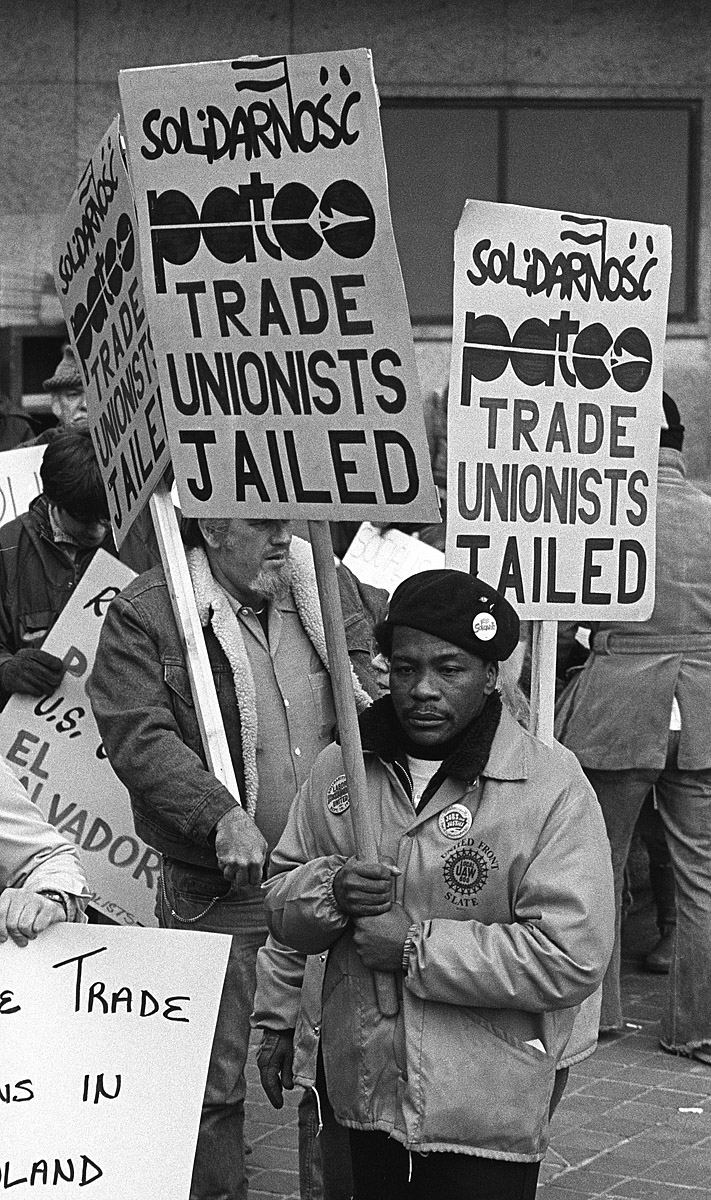Labor History: Solidarity Begins with PATCO

The sign carried by a sympathizer on the Professional Air Traffic Controllers picket line at Detroit’s Metropolitan Airport read: “Polish Solidarity American Style.” With American unionists being fired and thrown in jail simply for exercising the right to strike, the comparison with Poland was inevitable. PATCO entered the strike with a narrow, but for it critical, set of concerns. Their prime concerns are a shorter work week and earlier retirement. They point out that because of the stress of the job, 90% of the controllers must quit before reaching retirement age. And their 40 hour week is higher than that of controller in most other western countries. Finally, although almost all of the controllers will tell you that wages are not the issue, their buying power has been cut considerably by inflation in recent years. Even more serious for PATCO was the lack of progress on these issues over ten years and the “take it or leave it” stonewall bargaining practiced by the Reagan administration. This is particularly ironic since Reagan had written October 20 that “too few people working unreasonable hours with obsolete equipment has placed the nation’s air travelers in unwarranted danger.” Give $10 a month or more and get our "Fight the Boss, Build the Union" T-shirt. But Reagan took a tough stance for reasons which go way beyond the air traffic controllers. He’s on a winning streak with his tax and budget programs. A desperate public is hoping it might work. The administration’s aim is to counter the inflationary impact of its defense budget and its high interest rates by intimidating labor into accepting a cut in the standard of living. Reagan’s message to employers is clear: play hardball and the government will back you up. This danger was widely recognized early in the strike. The interest among union activists in supporting the strike was evident as people joined PATCO picket lines across the country. Rallies and demonstrations have been held across the country. Some have been organized by official labor bodies; others have been unofficial.
SUPPORT LABOR NOTES
BECOME A MONTHLY DONOR





You must log in or register to post a comment.